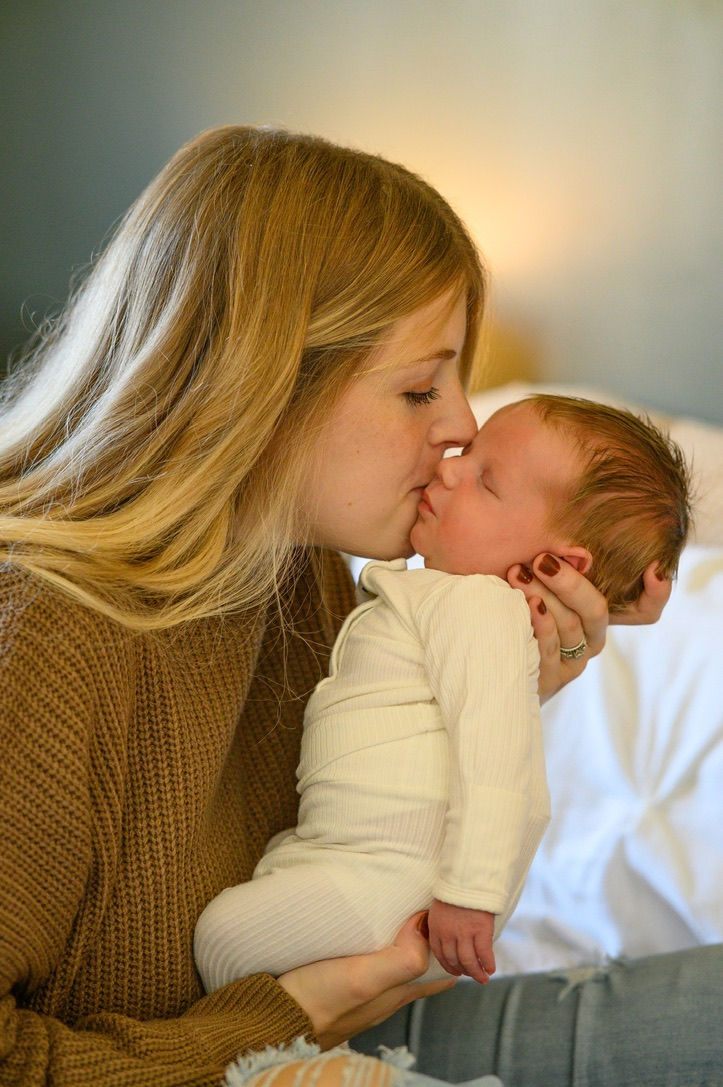Unlocking Baby Babble: Your Guide to Early Communication Magic
- Lauren Davies

- Apr 15, 2024
- 3 min read
From adorable coos to captivating smiles, infants have a remarkable ability to communicate from the moment they enter the world. Much of that communication is unintentional: a hungry cry, a sleepy yawn, a content sigh. However, as infants develop, they rapidly begin to add intentional communication: reaching for Mom, making eye contact, smiling at a favorite toy. This post will help provide you with ideas for supporting and increasing intentional communication in your baby's development, providing the building blocks your baby needs to eventually develop expressive language!


0-3 Months: Exploring the World Through Sounds and Gestures
During the first three months of life, infants primarily communicate through sounds, facial expressions, and body movements, but they are already laying the groundwork for intentional communication. We can support this early communication by engaging in responsive interactions and providing a nurturing environment.
Tips and Activities for 0-3 Months:
Responsive Caregiving: Respond promptly to your baby's cues and vocalizations. This helps them feel secure and valued, laying the foundation for trust and communication.
Facial Mimicry: Mimic your baby's facial expressions and gestures. This encourages reciprocal interactions and helps them learn the basics of turn-taking in communication.
Talking and Singing: Talk to your baby often, describing your actions and the world around them. Singing nursery rhymes and lullabies also helps engage their attention and promote bonding.
Tummy Time: Encourage tummy time to help your baby strengthen their neck and upper body muscles. This position allows them to explore their environment and encourages early interactions with caregivers.
Reading Together: Start reading to your baby from birth, using simple board books with colorful pictures and contrasting patterns. This promotes language development and fosters a love for books from an early age.
3-6 Months: From Babbling to Beginning Conversations
As infants reach the three to six-month mark, they become more vocal and expressive, engaging in early babbling and vocal play. They also start to demonstrate joint attention, the ability to share attention with others on an object or event. This period is critical for laying the foundation for future language development and meaningful communication.
Tips and Activities for 3-6 Months:
Encourage Vocalizations: Respond enthusiastically to your baby's vocalizations, whether it's cooing, babbling, or laughing. This encourages them to continue exploring their voice and communicate with you.
Interactive Play: Engage in interactive play with your baby, using toys and objects to capture their interest. Encourage joint attention by pointing to objects and commenting on them together.
Turn-Taking Games: Play simple turn-taking games with your baby, such as peek-a-boo or pat-a-cake. This helps them understand the give-and-take nature of conversation and fosters social communication skills.
Mirror Play: Use a mirror to engage your baby in self-discovery. Encourage them to make faces and gestures, and mirror their actions back to them. This promotes self-awareness and social interaction.
Outdoor Exploration: Take your baby outdoors to explore the sights and sounds of nature. Point out interesting objects and events, such as birds chirping or leaves rustling, and describe them to your baby.
A Note About Joint Attention:
Throughout the first six months of life, joint attention plays a crucial role in language development. By sharing attention with others on objects and events, infants learn to coordinate their attention with others and begin to understand the communicative intent behind gestures, sounds, and words. As parents, we can support joint attention by following our baby's lead, providing rich language input, and engaging in reciprocal interactions.
The first six months of life are such an exciting time for communication development in infants. It's so fun to see each new aspect of development. By fostering a nurturing and responsive environment, engaging in interactive play, and promoting joint attention, YOU can help lay the foundation for meaningful communication and language development in your little one
Let's cherish these early moments of communication and celebrate the milestones along the way!






Comentários